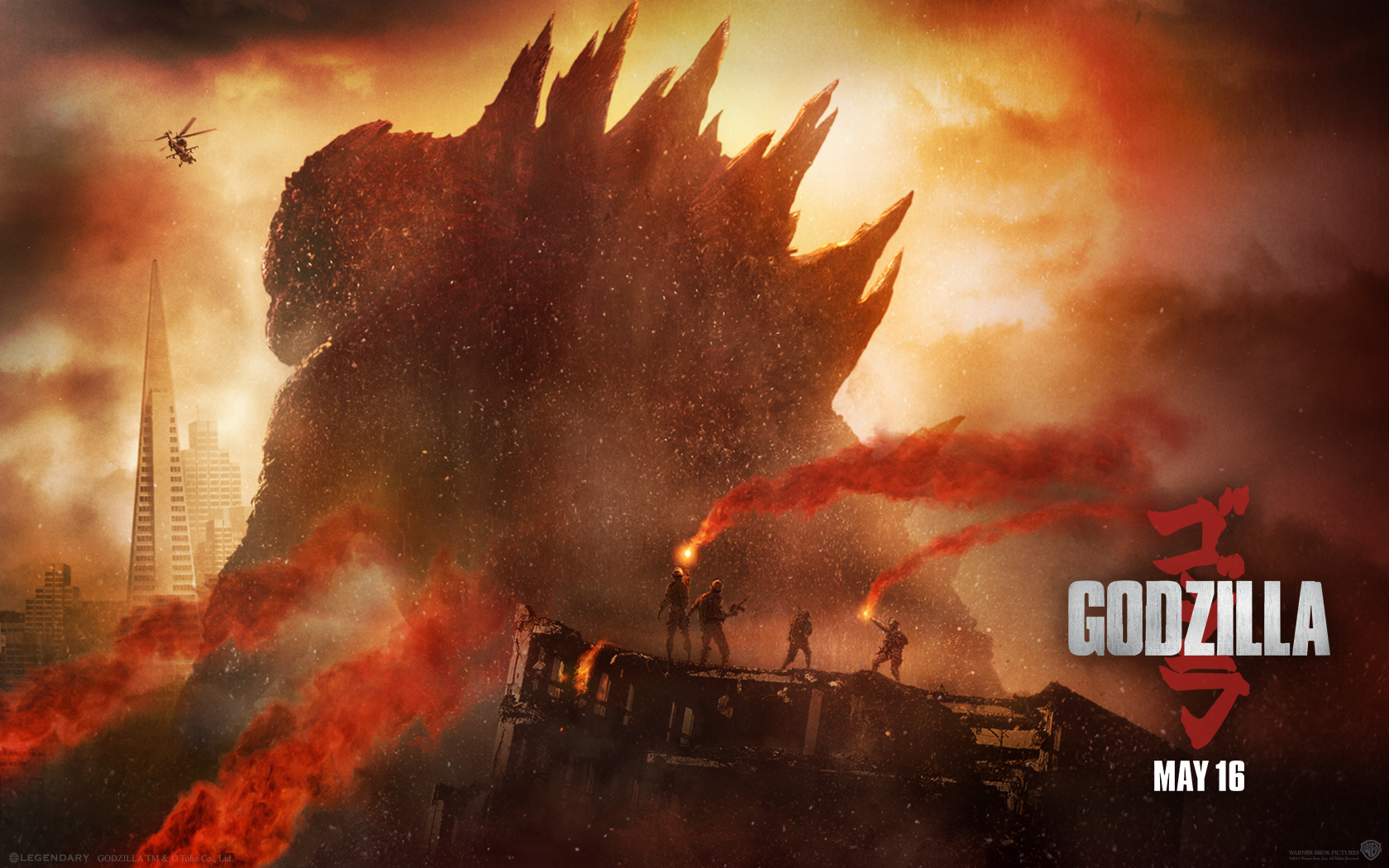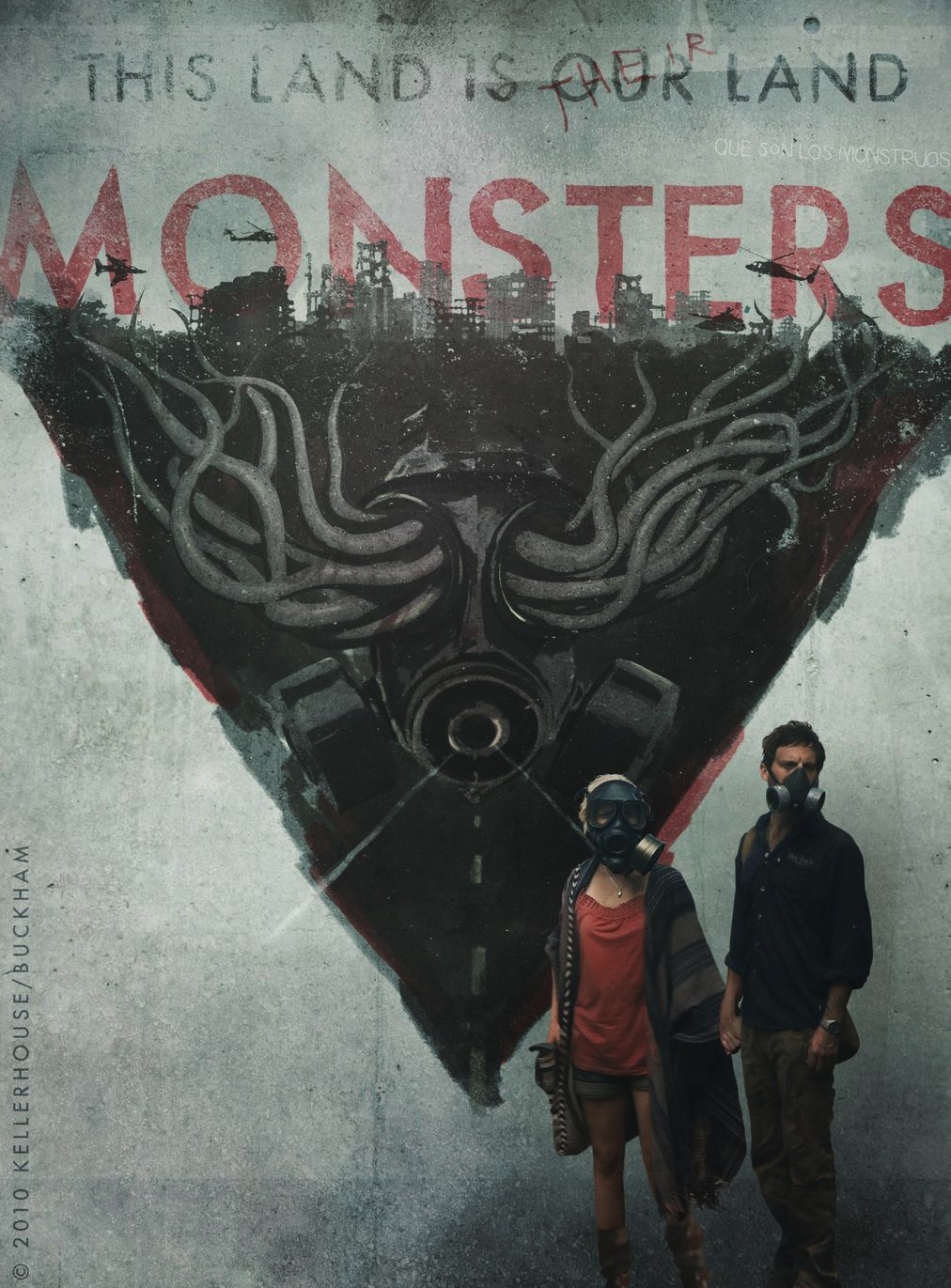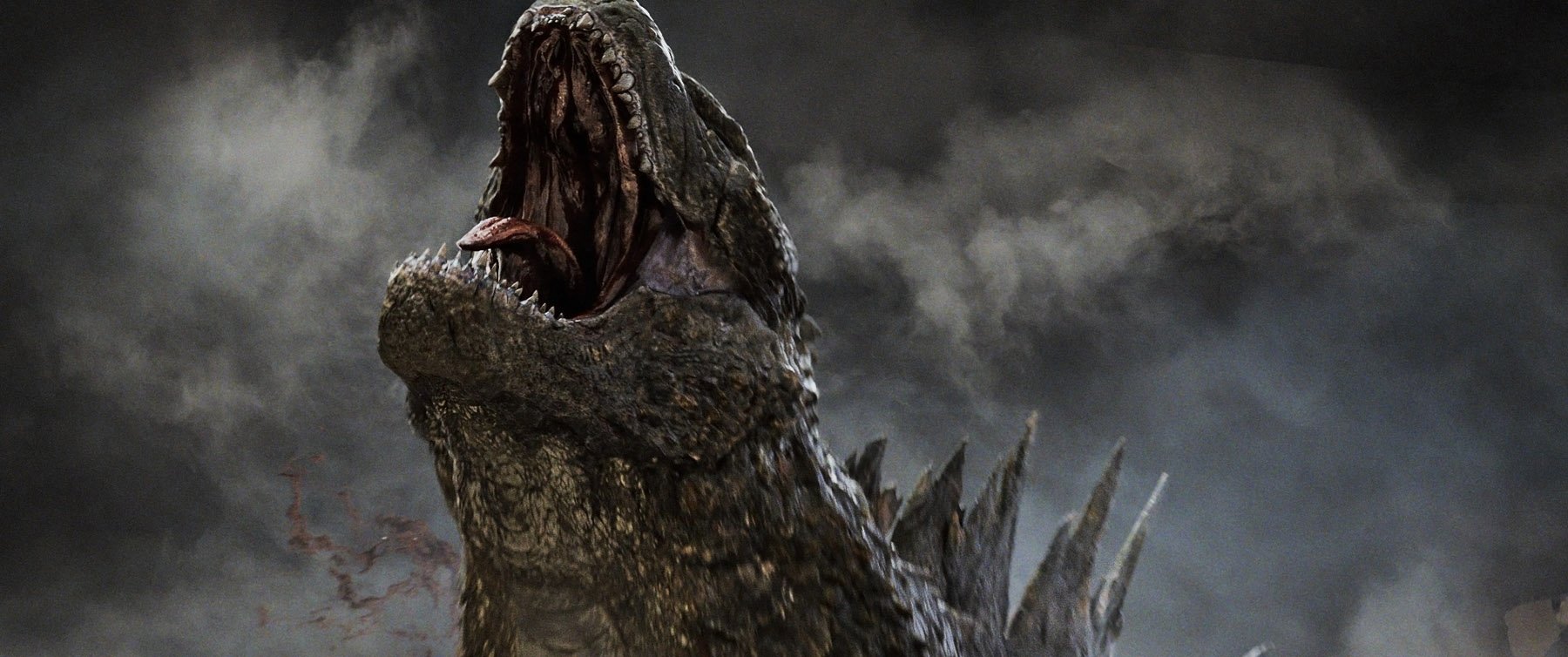
Godzilla (2014) – Legendary Pictures
After I watched Monsters—director Gareth Edwards’ first feature-length film—I couldn’t stop gushing over it. “Have you seen Monsters?” I would ask a friend.
“When I was seven, I thought I saw one hiding under my bed,” was usually their reply.
“No, the movie Monsters.”
“The one with Mike and Sulley?”
Monsters is an intimate, science-fiction film about an American journalist and a lonely tourist evading extraterrestrial life forms in Mexico. Monsters is unique for two reasons. For one, Edwards shot and edited the entire film for a few hundred thousand dollars, creating all the visual effects on his personal laptop. Second, the creatures in Monsters have a spark to them. They’re more than heartless entities destined to destroy the planet. There’s a dash of empathy and even some compassion to go around.

Monsters is currently streaming on Netflix
Four years later, Edwards is releasing another monster film. This time the rebooted, retooled Godzilla. Even with a $159 million budget increase, the monster spark hasn’t disappeared. Godzilla is more than a roar or action set piece, he’s almost, well, human. And, more often than not, he’s much more interesting than any of the other protagonists in the film.
I won’t give away much of Godzilla’s plot, but here’s what you already know if you’ve watched the trailer. A monster is on the loose and its making a bigger mess than the climatic fight scene between Superman and General Zod in Man of Steel. If this isn’t enough, Godzilla is also on the move.
As the action heats up, we’re introduced to army lieutenant Ford Brody (Aaron Taylor-Johnson), the plot’s eyes and ears on the ground. Brody’s father Joe (played by the always interesting Bryan Cranston) is a once respected engineer turned conspiracy theorist. Even Ford has a tough time believing his father’s grandiose stories. That is, until he realizes Joe’s not too crazy after all.
Godzilla truly is popcorn crunching fun. It’s been a while since I’ve sat in a theater with people cheering on a monster. Part of the movie felt like I was watching a prehistoric UFC fight with a group of rowdy friends.
But as great as Godzilla’s action sequences are, Edwards shows considerable restraint in revealing the monster. The audience doesn’t even catch a glimpse of Godzilla until well past the forty-five minute mark. Plus, the fight scene we’re all waiting to see doesn’t come until the end of the movie.
This quality of control is what makes Godzilla so special. The story is structured in such a way that the climatic melee is truly climatic. I don’t want to dog too much on Man of Steel, but by the last act of the film I couldn’t wait for the carnage to end. It became a bore. Edwards doesn’t make the same mistake. That’s not to say there aren’t rousing action pieces. There are (especially the advertised HALO drop). Edwards just saves the best for last.
To be upfront, Godzilla isn’t perfect; the film stumbles into a few disaster movie holes along the way. Most of the characters in Godzilla, including Brody’s, are underdeveloped. Of course I wanted Brody to survive, I’m no monster (pun), but I didn’t find him all that compelling. Ironically, after leaving the showing, I felt like the human protagonists in the film could have benefited from a little more of Godzilla’s humanity.
Godzilla’s character is also, to my amazement, somewhat divine. By design or not, he’s the hero the human heroes are not. In a recent interview, Edwards says about Godzilla, “Well, there’s a reason his name begins with ‘God,’ I think. He is a god, really. He’s at the top of the food chain and probably King of the World, in a sense.”

Godzilla jumps on the scene to correct the mistakes of humanity. He is the antithesis of the evil force embedded, literally, deep within the world.
Godzilla as an allegory to the Christian God was the last piece of symbolism I expected to find. If you haven’t seen the movie, you probably think it’s a stretch, and maybe it is, but if you’ve already watched Godzilla, you just might agree with me.
In his review of the film, Christianity Today writer Timothy Wainwright says, “The tagline for church marketing could be ‘Godzilla, even less safe than Aslan!’ The movie comes out as a sort of Book of Nahum reenacted with action figures from the future, or something. None of this is bad—it’s just a major head scratcher.” I benefitted from Wainwright’s review, largely because it made me feel a little less crazy.
If this is a suitable interpretation of Godzilla, then it makes for an interesting point. The God of the Bible certainly defies expectations. He’s not always viewed by humanity as the benevolent creator his character entails. His justice often produces a lump of fear in our chests. Some say he’s an enemy, some, as one news headline in the film dubs Godzilla, call him “savior.”
However you interpret the “God” in Godzilla, we certainly know one thing: he’s a lot more interesting than us humans.
4 Stars out of 5
Godzilla is rated PG-13 for intense sequences of destruction, mayhem and creature violence.




